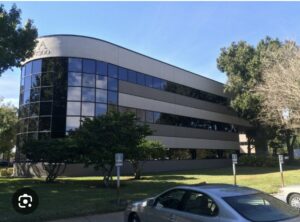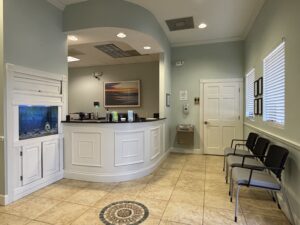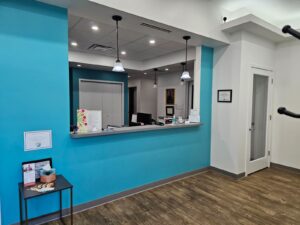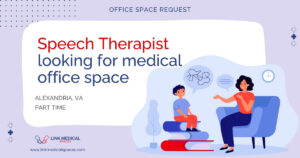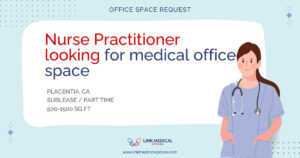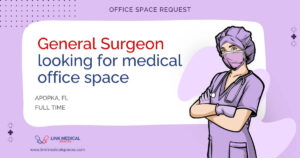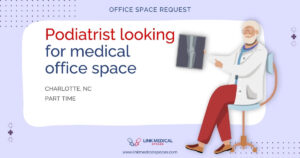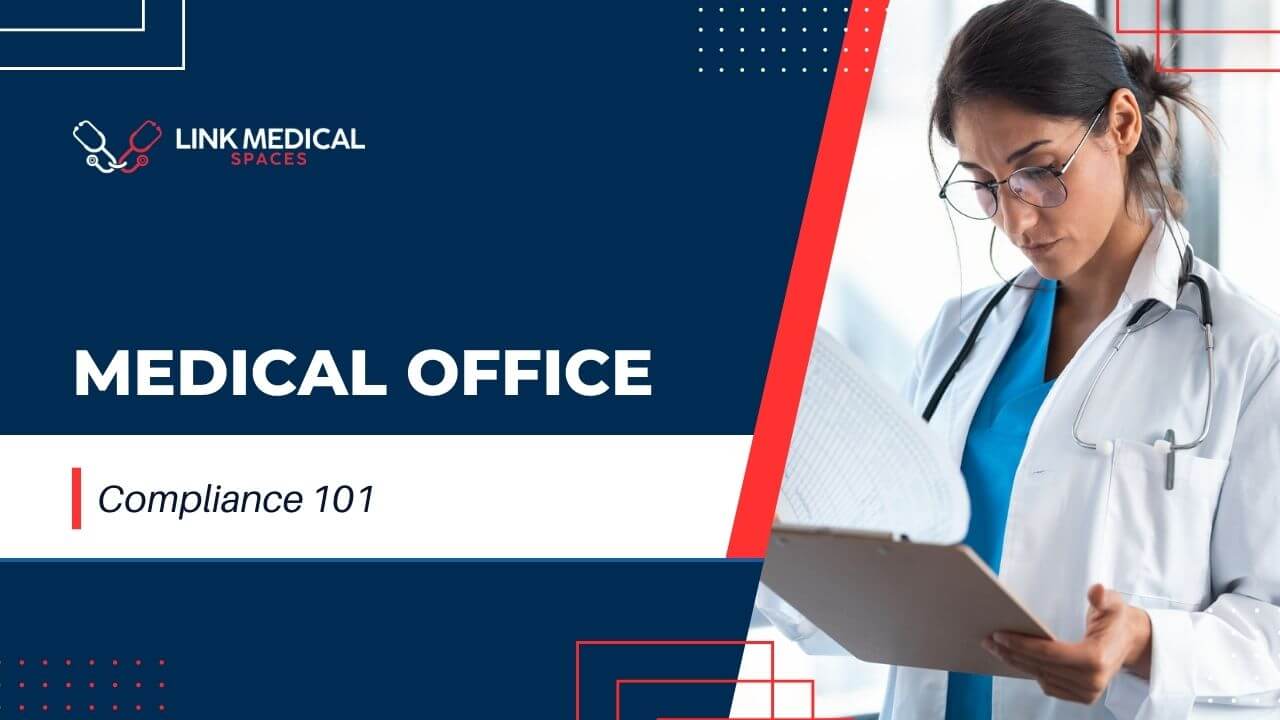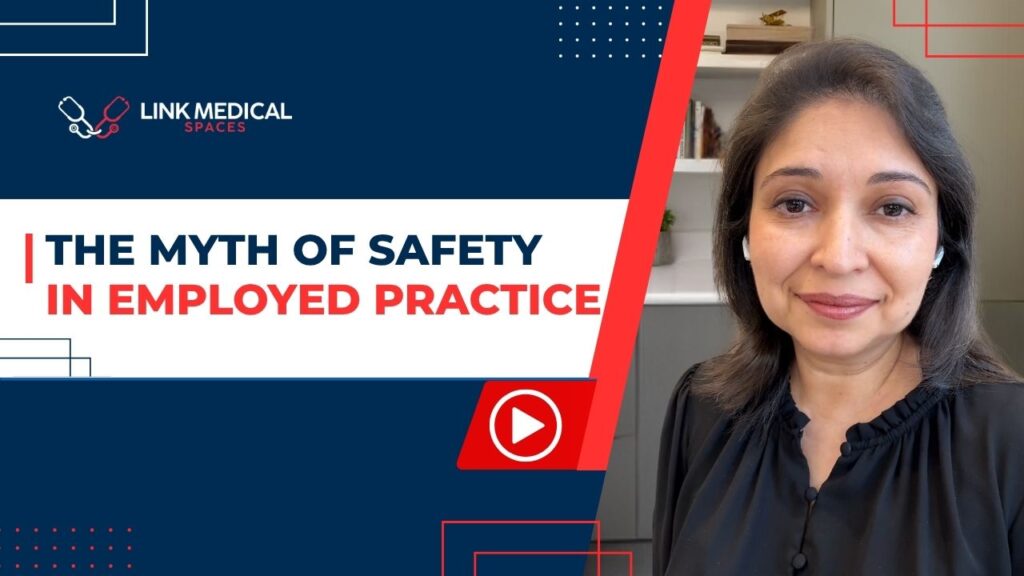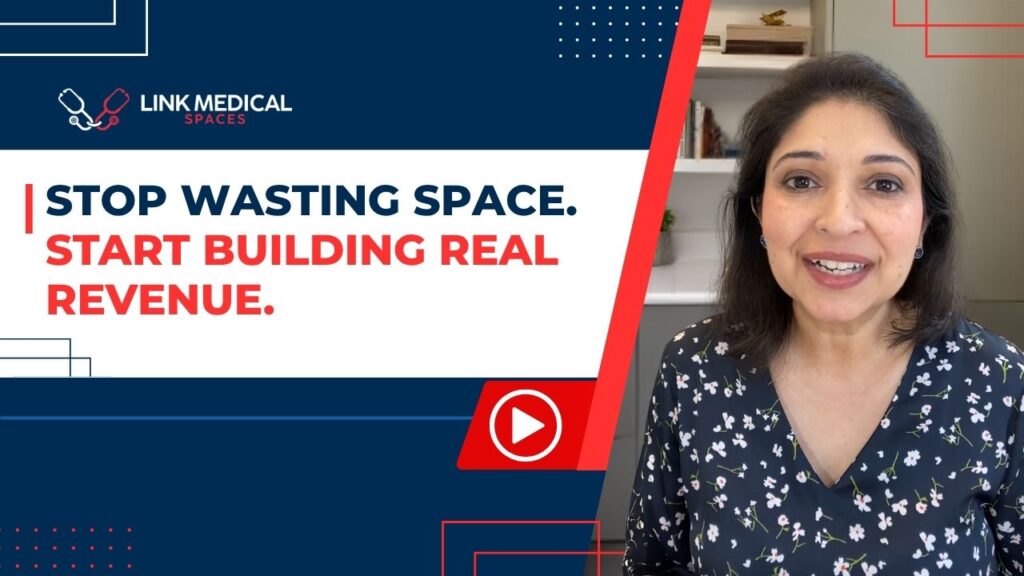Why Compliance Matters
Purchasing or leasing a medical office is more than just securing a space—it comes with strict regulatory requirements that healthcare providers must meet. From patient accessibility and privacy laws to workplace safety and zoning regulations, failure to comply can result in fines, legal liability, or even forced closure.
Whether you are leasing your first medical office or expanding your practice, understanding basic compliance requirements is essential for ensuring patient safety, legal protection, and smooth operations.
In this guide, we’ll cover the fundamental compliance requirements for medical offices, including:
✔ ADA Compliance (Americans with Disabilities Act) – Accessibility requirements for patients with disabilities
✔ HIPAA Compliance (Health Insurance Portability and Accountability Act) – Protecting patient data privacy
✔ OSHA Compliance (Occupational Safety and Health Administration) – Workplace safety and hazardous material handling
✔ Stark Law & Anti-Kickback Statute Compliance – Avoiding illegal financial relationships in patient referrals
✔ Zoning & Building Codes – Ensuring your office is legally approved for medical use
✔ Fire & Life Safety Regulations – Meeting emergency preparedness and fire prevention standards
ADA Compliance: Accessibility for Patients with Disabilities
The Americans with Disabilities Act (ADA) mandates that medical offices must be accessible to all patients, including those with mobility challenges.
Key ADA Requirements for Medical Offices
✔ Accessible Entrances
- At least one wheelchair-accessible entrance with ramps, automatic doors, and no steps
- Doorways must be at least 32 inches wide to accommodate wheelchairs
✔ Parking & Pathways
- Handicap parking spaces must be available, including van-accessible spaces
- Clear, obstruction-free paths from parking to the entrance
✔ Restrooms
- Wheelchair-accessible stalls with grab bars, lowered sinks, and wide doorways
- Doors must be easy to open with one hand and require minimal force
✔ Waiting & Exam Rooms
- Seating should accommodate wheelchair users
- Exam tables should be height-adjustable or have alternative accommodations
🔎 Pro Tip: Non-compliance can lead to fines of up to $75,000 for the first violation and $150,000 for subsequent violations.
HIPAA Compliance: Protecting Patient Data & Privacy
The HIPAA Privacy and Security Rules require medical offices to safeguard patient health information (PHI).
Key HIPAA Requirements for Medical Offices
✔ Patient Privacy Protections
- Medical records must be stored securely with limited staff access
- Office layout should prevent unauthorized access to patient files
✔ Electronic Security (HIPAA Security Rule)
- Use encrypted electronic health record (EHR) systems
- Implement firewalls, antivirus software, and multi-factor authentication
✔ Business Associate Agreements (BAA)
- Any third-party vendors handling PHI must sign a HIPAA-compliant agreement
✔ Patient Rights & Consent
- Patients must be provided with HIPAA privacy notices
- Practices must obtain patient consent before sharing PHI for non-treatment purposes
🔎 Pro Tip: HIPAA violations can result in fines up to $1.5 million per year per violation type, depending on severity.
OSHA Compliance: Workplace Safety & Hazardous Materials Handling
OSHA (Occupational Safety and Health Administration) enforces workplace safety standards to protect employees and patients in medical offices.
Key OSHA Requirements for Medical Offices
✔ Bloodborne Pathogens Standard (29 CFR 1910.1030)
- Proper disposal of needles, syringes, and biohazard waste
- Staff training on exposure control plans
✔ Hazard Communication Standard (29 CFR 1910.1200)
- Labeling & proper storage of hazardous chemicals
- Material Safety Data Sheets (MSDS) must be accessible
✔ Personal Protective Equipment (PPE) Standards
- Provide gloves, masks, and PPE for handling biohazards
✔ Emergency Action Plans (EAPs)
- Clearly marked emergency exits and fire escape routes
- Fire drills and staff training on evacuation procedures
🔎 Pro Tip: OSHA fines range from $15,625 per violation to $156,259 for repeated violations.
Stark Law & Anti-Kickback Statute: Avoiding Illegal Financial Referrals
The Stark Law and Anti-Kickback Statute (AKS) regulate financial relationships between physicians and healthcare entities to prevent unethical referrals.
Key Stark Law & Anti-Kickback Statute Rules
✔ No Referrals for Financial Gain
- Physicians cannot refer Medicare/Medicaid patients to a facility where they have a financial interest, unless an exception applies
✔ Fair Market Value Leases
- Medical office lease agreements must reflect fair market value
- Lease agreements cannot be tied to patient referral volume
✔ No Incentives for Referrals
- Practices cannot offer discounts, gifts, or financial incentives in exchange for referrals of Medicare/Medicaid patients
🔎 Pro Tip: Violations can result in fines of $25,000 per claim and exclusion from federal healthcare programs.
Zoning & Building Code Compliance: Ensuring Legal Approval for Medical Use
Before leasing a space, verify that it complies with local zoning laws and building codes.
Key Zoning & Building Code Considerations
✔ Medical Use Approval
- Not all commercial buildings allow medical office use—check with local zoning boards
✔ Medical Waste Disposal Permits
- Practices handling biohazardous materials must have proper disposal permits
✔ Parking & Traffic Flow
- Some cities require more parking spaces per square foot for medical offices
🔎 Pro Tip: Zoning issues can delay office openings by months—always confirm compliance before signing a lease.
Fire & Life Safety Regulations: Emergency Preparedness & Fire Prevention
Medical offices must comply with fire safety regulations to protect patients and staff.
Key Fire Safety Requirements
✔ Emergency Exit Plans & Fire Drills
- Offices must have clearly marked emergency exits
- Staff should be trained on emergency evacuation procedures
✔ Fire Suppression Systems
- Fire extinguishers, smoke detectors, and sprinkler systems must be regularly inspected
✔ Safe Storage of Flammable Materials
- Medical supplies like oxygen tanks and disinfectants must be stored properly
🔎 Pro Tip: Fire code violations can lead to fines or business closure until issues are resolved.
Final Thoughts: Ensuring Full Compliance in Your Medical Office
Meeting compliance requirements is critical for running a safe, legal, and patient-friendly medical office.
Key Takeaways
✔ Ensure ADA compliance for patient accessibility
✔ Protect patient data with HIPAA regulations
✔ Maintain OSHA workplace safety standards
✔ Avoid illegal referrals under Stark Law & Anti-Kickback Statute
✔ Confirm zoning and building code approvals before leasing
✔ Implement fire safety measures for emergency preparedness
🔎 Pro Tip: Work with a healthcare attorney to review lease agreements, conduct compliance audits, and ensure full regulatory adherence.
By addressing compliance before signing a lease, you can operate smoothly, avoid legal pitfalls, and provide high-quality patient care.
For more expert insights on medical office leasing and compliance, stay informed with Link Medical Spaces—your trusted resource for navigating healthcare real estate.


